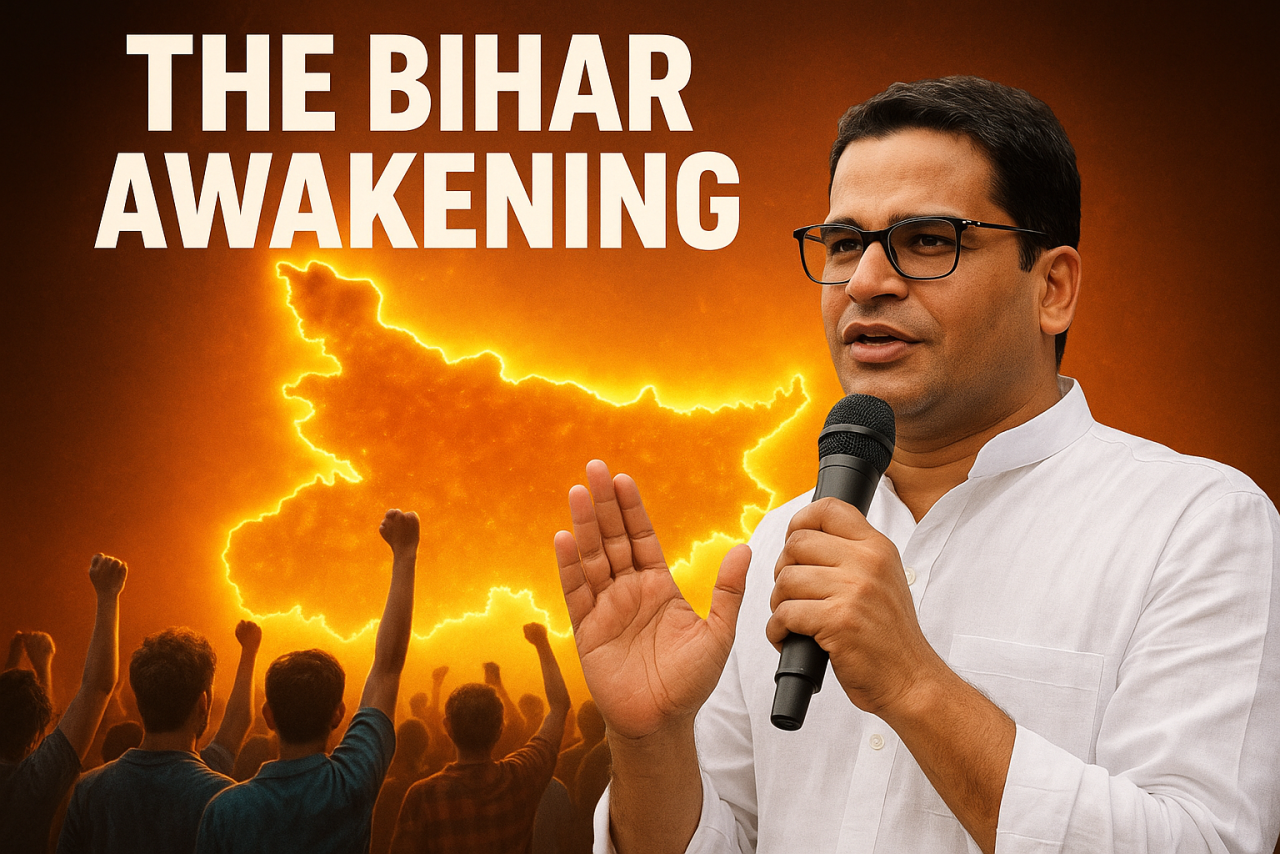
History often begins quietly, in whispers that grow into a roar. Bihar’s 2025 Assembly election may well be remembered as such a moment. When the Election Commission announced a record turnout of 64.66 percent in the first phase of polling, it was not merely a statistic. It was a sign that something had stirred in the collective consciousness of a weary state. Beneath the numbers lies a story of aspiration, anger, and awakening—one that Prashant Kishor’s Jan Suraaj movement has managed to capture with precision.
Bihar is a state of contradictions. It is the cradle of ancient learning and yet struggles with some of the lowest indicators of modern progress. The average age of its people is barely twenty-five. That means one in every four voters belongs to a generation that never saw the “jungle raj” of Lalu Prasad Yadav and grew up in the long, stagnant calm of Nitish Kumar’s governance. For these young men and women, politics has been less a source of hope and more a theatre of disappointment. Jobs are scarce, migration is a compulsion, and the unemployment rate still hovers around eleven percent. The caste census revealed an even bleaker picture, with thirty-four percent of Bihar’s people living in acute poverty.
In this landscape, Prashant Kishor has arrived not as another politician but as an idea. He speaks not of slogans, but of systems. His Jan Suraaj—literally “People’s Good Governance”—is a call to reorder how Bihar thinks about itself. It is a mission that blends the language of development with the moral vocabulary of dignity. Kishor’s strategy is simple: return politics to the people, and return governance to the ground.
The numbers tell a story that supports this shift. With a turnout crossing sixty-four percent, the engagement of young voters is unmistakable. If a quarter of Bihar’s electorate is under twenty-five and even two-thirds of them voted, they account for a significant portion of the total turnout. A small swing in their preference can have seismic consequences. If even ten percent of this youthful vote turns toward Jan Suraaj, it translates into a meaningful slice of the state’s overall vote share—enough to challenge the arithmetic of traditional parties built on caste and inertia.
Kishor’s message has found resonance in the migration corridors of the state. Young Biharis who toil in other states return home for festivals like Chhath, bringing back not just remittances but also ideas of how life can be lived elsewhere. They have seen cities where civic amenities function and governments respond. They no longer wish to be defined by their poverty or their postal code. In this audience, Kishor finds his natural constituency—a generation that wants to build rather than beg.
His candidates reflect this promise. Many come from professional backgrounds—teachers, doctors, engineers—individuals who command respect rather than loyalty. They carry no dynastic baggage, and that is precisely their strength. In a state long ruled by familiar surnames, the very presence of such candidates challenges the notion that politics must be inherited. It reminds voters that leadership can be earned.
There is also something symbolic about Kishor himself. Once the master strategist behind others’ victories, he has stepped into the arena he once mapped from the outside. He is both insider and outsider, realist and reformer. His approach is rooted in the belief that Bihar’s ailments are administrative, not genetic. The problem is not the people, he says, but the politics that has failed them.
If this election becomes a referendum on that idea, Bihar could witness a generational shift. The signs are visible. The record turnout, the queues of first-time voters, the quiet confidence in smaller towns and villages—all suggest that cynicism is giving way to cautious belief.
For decades, Bihar’s story has been one of flight: of its youth leaving in search of dignity and work. Jan Suraaj seeks to reverse that flow, to create a state where migration is a choice, not a necessity. It imagines a Bihar that builds its future with its own hands.
The outcome of this election will reveal how deep that imagination runs. But one thing is certain—the youth of Bihar have woken up. They are asking questions their parents never dared to. They are looking beyond caste and clan. And in that awakening lies the quiet beginning of a revolution.
Perhaps Prashant Kishor’s greatest success is not in his speeches or calculations, but in convincing a generation that change is not only necessary, it is possible.
By Gautam Jha
Managing Editor





















